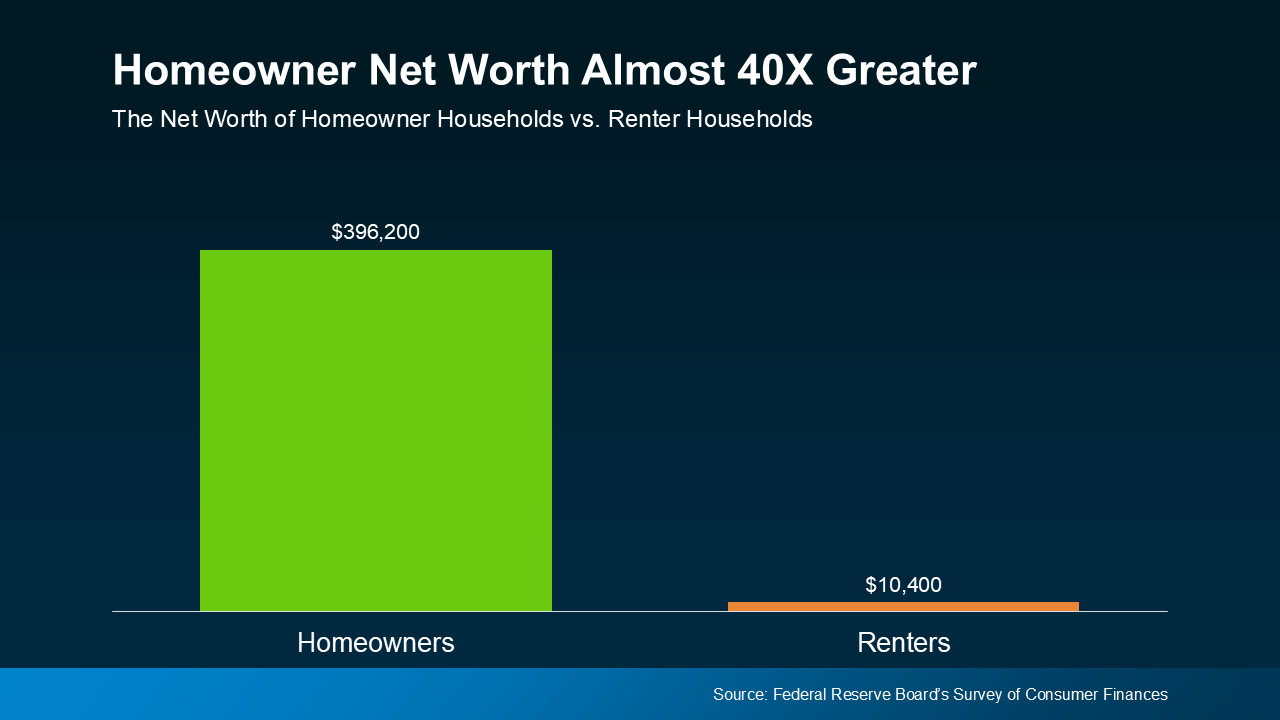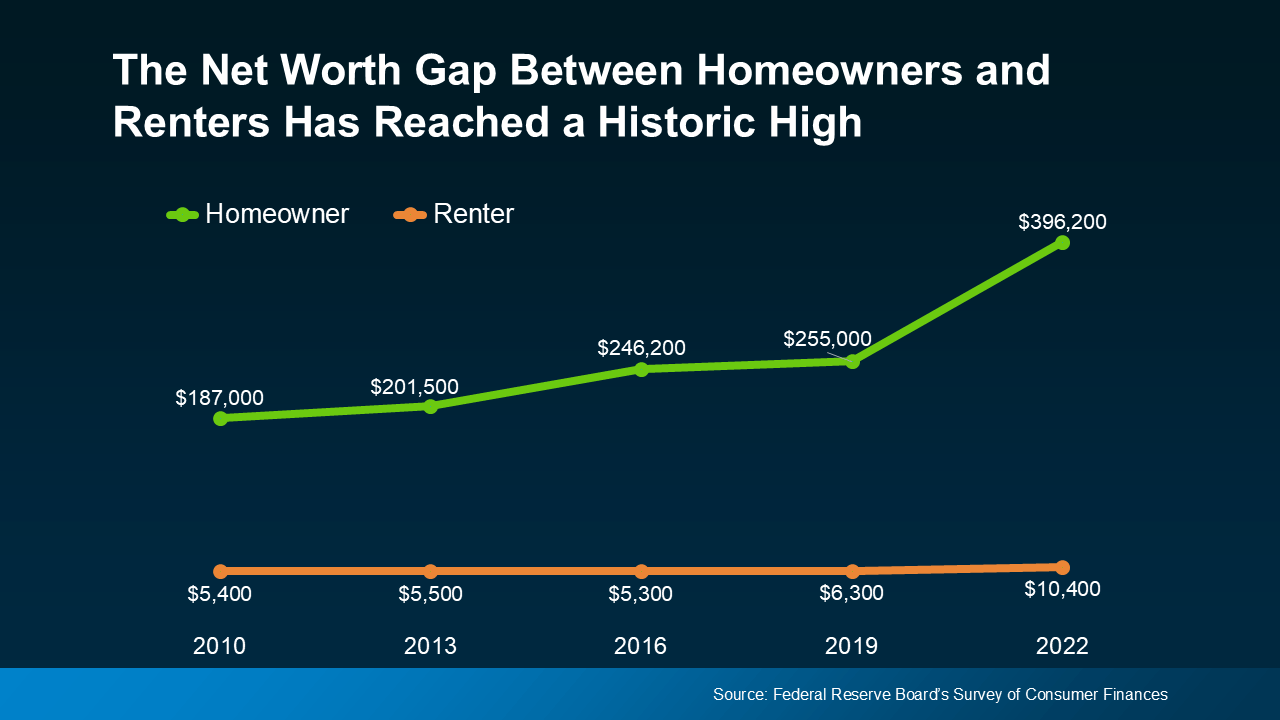Renting vs. Buying: The Net Worth Gap You Need To See
Trying to decide between renting or buying a home? One key factor that could help you choose is just how much homeownership can grow your net worth.
On Martha's Vineyard, where real estate is highly sought-after, this decision carries even greater weight. A key factor that might help you choose is how much homeownership can boost your net worth over time. The unique conditions on the island make purchasing a home a potential wealth-building strategy that goes beyond simply finding a place to live.
Every three years, the Federal Reserve Board shares a report called the Survey of Consumer Finances (SCF). It shows how much wealth homeowners and renters have – and the difference is significant.
On average, a homeowner’s net worth is nearly 40 times higher than a renter’s, demonstrating how ownership, especially in desirable markets like Martha’s Vineyard, can drive financial stability and growth. Check out the graph below to see the difference for yourself:
Why Homeowner Wealth Is So High
In the previous version of that report, the average homeowner’s net worth was about $255,000, while the average renter’s was just $6,300. That’s still a big gap. But in the most recent update, the spread got even bigger as homeowner wealth grew even more (see graph below):
As the SCF report says: “. . . the 2019-2022 growth in median net worth was the largest three-year increase over the history of the modern SCF, more than double the next-largest one on record.”
One big reason why homeowner wealth shot up is home equity. Equity is the difference between your home’s value and what you owe on your mortgage. You gain equity by paying down your mortgage and when your home’s value goes up.
If you're curious about how much equity you've gained recently and want to ensure you're using it wisely, this quick video, How Much Equity Did You Gain This Year? provides valuable insights. It explores the impact of equity on net worth and offers tips on how homeowners can maximize this asset to build wealth over time. Watching this video will help you better understand the importance of equity and how to make the most of it in a market as dynamic as Martha’s Vineyard.
Over the past few years, home prices have gone up a lot. That’s because there weren’t enough available homes for all the people who wanted one. This supply-demand imbalance pushed home prices up – and that translated into faster equity gains and even more net worth for homeowners.
If you’re still torn between whether to rent or buy, here’s what you should know. While inventory has grown this year, in most places, there’s still not enough to go around. That’s why expert forecasts show prices are expected to go up again next year nationally. It’ll just be at a more moderate pace.
While that’s not the sky-high appreciation we saw during the pandemic, it still means potential equity gains for you if you buy now. As Ksenia Potapov, Economist at First American, explains: “Despite the risk of volatility in the housing market, homeownership remains an important driver of wealth accumulation and the largest source of total wealth among most households.”
Martha’s Vineyard’s housing market, like many resort and coastal areas, operates within unique supply and demand constraints. Limited space for new construction and high demand keep property values resilient. While national trends suggest price increases will moderate, areas with housing scarcity, like Martha’s Vineyard, are still expected to see appreciation. If you're weighing the decision to buy here, understanding these dynamics and consulting with a local agent can make a significant difference. They can provide insights into the island's specific market trends and help clarify whether homeownership aligns with your financial goals.
As Bankrate explains: “Deciding between renting and buying a home isn’t just about cost — the decision also involves long-term financial strategies and personal circumstances. If you’re on the fence about which is right for you, it may be helpful to speak with a local real estate agent who knows your market well. An experienced agent can help you weigh your options and make a more informed decision.”









































































































